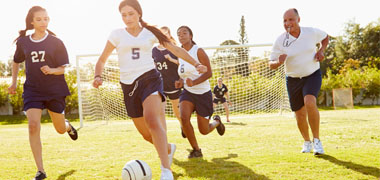
AI Occupational Exposure score unavailable For more insight, research the specific tasks and skills required for the role.
Explore all careersSports Scientists advise athletes and coaches on performance improvement, conducting assessments and developing tailored training and recovery plans.
Get qualified to work as a Sports Scientist with a course recognised across Australia. Speak to a training provider to learn more.
Salaries for ESSA-accredited Sports Scientists in Australia range between $62,000 per annum (entry-level graduates) and $100,000 (senior positions). Exercise & Sports Science Australia (ESSA) is our country’s peak industry body for sports and exercise professionals.
 Courses.com.au Team
Courses.com.au Team
There are no clear employment figures for Sports Scientists working in Australia right now. They are employed by professional athletes and sporting teams, gymnasiums, sports centres, healthcare organisations, government agencies, universities and academic institutions. Some Sports Scientists work as independent consultants.
 Courses.com.au Team
Courses.com.au Team
To become an ESSA-accredited Sports Scientist, you must complete an approved Bachelor’s degree such as the Bachelor of Exercise and Sport Science, Bachelor of Human Movement, Bachelor of Science (Human Movement), or Bachelor of Health Science (Sport). To advance your career you will need a Master’s degree. Suitable qualifications include the Master of Science (Sport & Exercise), Master of Sport and Exercise (Research), and Master of Applied Sport Science.
Source: Australian Government Labour Market Insights 2023
 Courses.com.au Team
Courses.com.au Team



Sports Scientists provide expert advice to professional athletes and their coaches. They can work in either professional practitioner roles (providing one-on-one consultations with clients) or as dedicated researchers (opening up new bodies of knowledge that improve athletic performance).
As a Sports Scientist you could be having an initial meeting with the coach of a football team to discuss their performance shortfalls, helping a swimmer refine their strength-based training plan, conducting a physical fitness and movement test with a professional runner, recording a cyclist’s race results and analysing historical data, or developing a recovery plan for a tennis player who is injured.